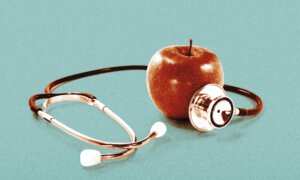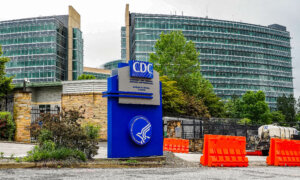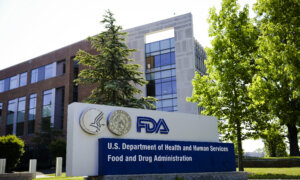The Centers for Disease Control and Prevention (CDC) and the U.S. Food and Drug Administration (FDA) are investigating an E. coli outbreak that has caused 10 illnesses across four states, between Oct. 18, 2023 and Jan. 29, 2024.
The CDC issued a food safety alert Feb. 16 for a raw milk cheddar cheese that six of the 10 sick people consumed in California, Utah, Colorado, and Texas.
“CDC advises people not to eat, sell, or serve RAW FARM brand raw cheddar cheese while the investigation is ongoing,” the agency stated in the alert.
“In response to this investigation, RAW FARM, LLC has agreed to initiate a recall of certain lots of RAW FARM- brand Raw Cheddar cheese currently within shelf life,” according to the FDA website.
Raw Farm, a raw dairy farm company based in Fresno, Calif., sells its products in many grocery stores in California, including Sprouts, Bristol Farms, Erewhon, Lassen’s, Mother’s Market, and specialty food stores.
The CDC reported four of the sick people have been hospitalized, with one case of hemolytic uremic syndrome, a serious condition that can lead to kidney failure. No one has died.
The strain involved in the outbreak, E. coli O157:H7, “is the most likely to cause severe illness,” according to the Cleveland Clinic. Antibiotics cannot cure the infection or prevent hemolytic-uremic syndrome, states the Merck Manual.
According to the New York State Department of Health website, “Antibiotics should not be used for the treatment of STEC infection since there is no evidence that antibiotics are helpful with these infections and may increase the risk of developing hemolytic uremic syndrome.”
The CDC reports health officials are interviewing people about what they ate in the week prior to getting infected, but no information was given about the overall diet of the 10 people who became sick. Some people who follow a raw food diet may eat other raw animal foods such as raw eggs or meat.
Raw Farm Response
Mark McAfee, founder and CEO of Raw Farm, defended the company and suggested their products may not be the cause of the outbreak.
“At present there are no people currently hospitalized [with the infection]. Half said they didn’t eat our raw cheese. The WGS [whole genome sequencing] doesn’t match at all. This was months ago. None of our products has tested positive for E. coli pathogens. None! We are holding our official reactions to the CDC and FDA until we get all the product testing data in,” he told California Insider.
Mr. McAfee said the tests that the CDC and FDA relied upon were done on fecal samples, whereas the actual dairy products did not test positive for E. coli. He said Raw Farm spends $800,000 or more each year on pathogen lab testing, and over $2,000 per day. He said they test for E. coli, including the E. coli O157:H7 strain in question, salmonella, Campylobacter, Listeria monocytogenes, tuberculosis, Johne’s, Brucellosis, among others.
He said the farm tests the source milk at the beginning of the process as well as the cheese once it’s made.
According to Raw Farm’s website, “Our protocol is a three (3) step testing process that starts at the dairy (milking) level and ends with the final product (creamery). Under our Test & Hold Protocol, we test every single milking batch for pathogens and assign a unique ‘Lot ID’, which provides accurate tracking of all milk batches. This allows us to connect our milk batches to all test results efficiently. Our family-owned business believes there is power in numbers and that is why we work closely every single day with our regulators and inspectors.”
Recommendations
The CDC gave a list of recommendations during the investigation of the outbreak:
—Do not eat any RAW FARM brand raw cheddar cheese. Throw them away or return them to where you bought them.
—Wash items and surfaces that may have touched the contaminated cheese using hot soapy water or a dishwasher.
—Call your healthcare provider if you have any of these severe E. coli symptoms:
- Diarrhea and a fever higher than 102°F
- Diarrhea for more than 3 days that is not improving
- Bloody diarrhea
- So much vomiting that you cannot keep liquids down
- Signs of dehydration, such as:
- Not peeing much
- Dry mouth and throat
- Feeling dizzy when standing up
- Feeling very tired
- Losing pink color in cheeks and inside the lower eyelids













